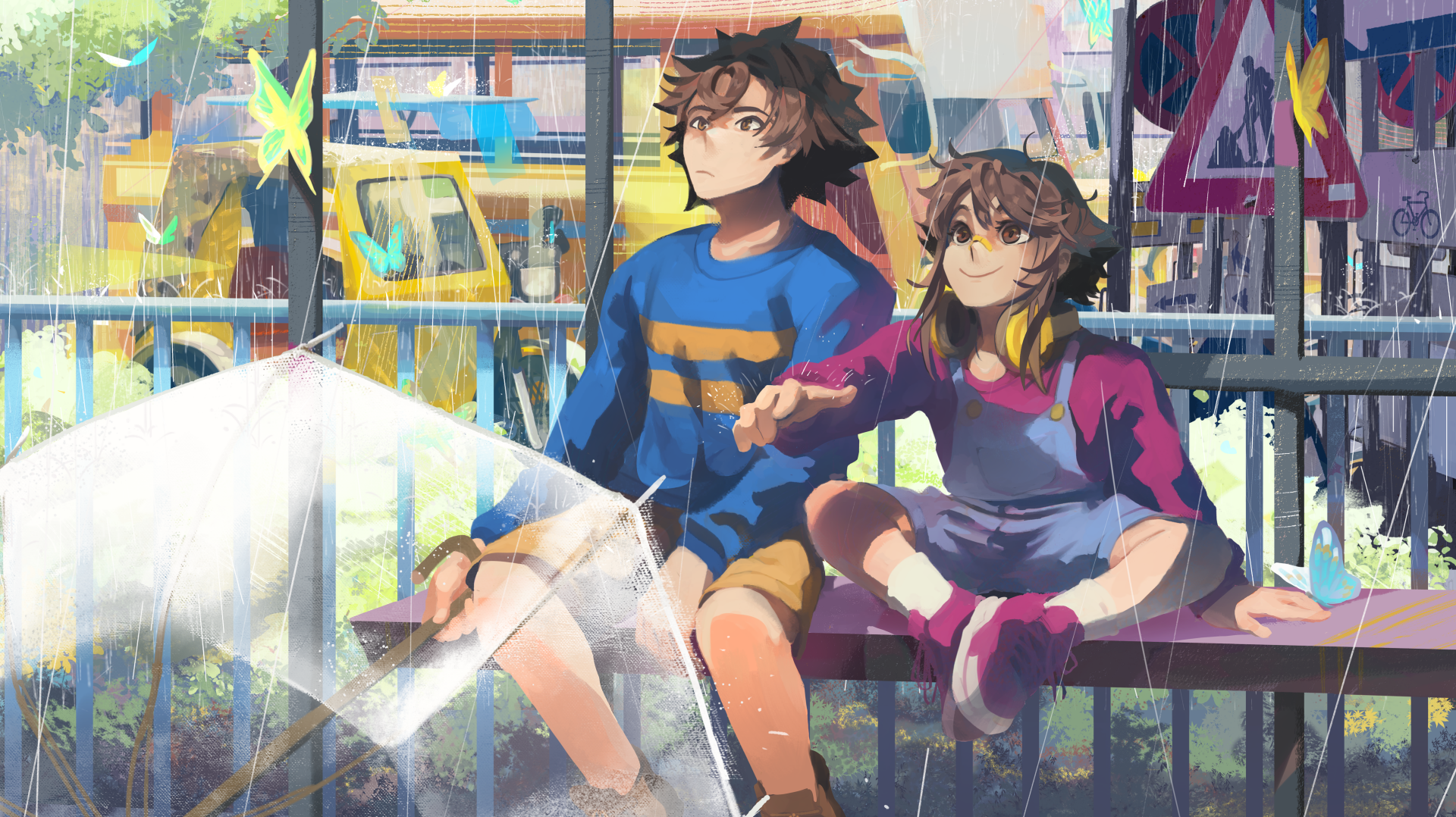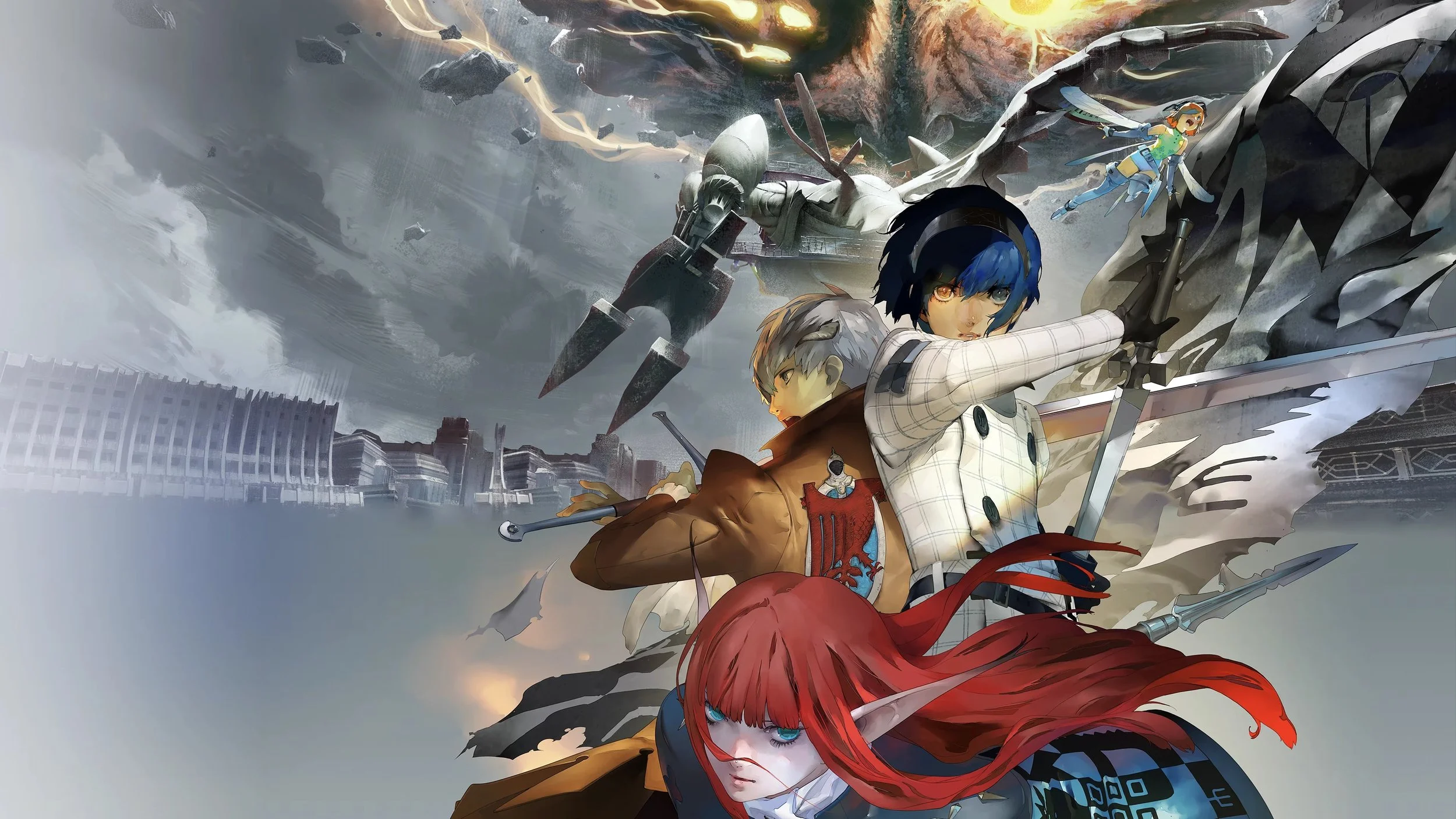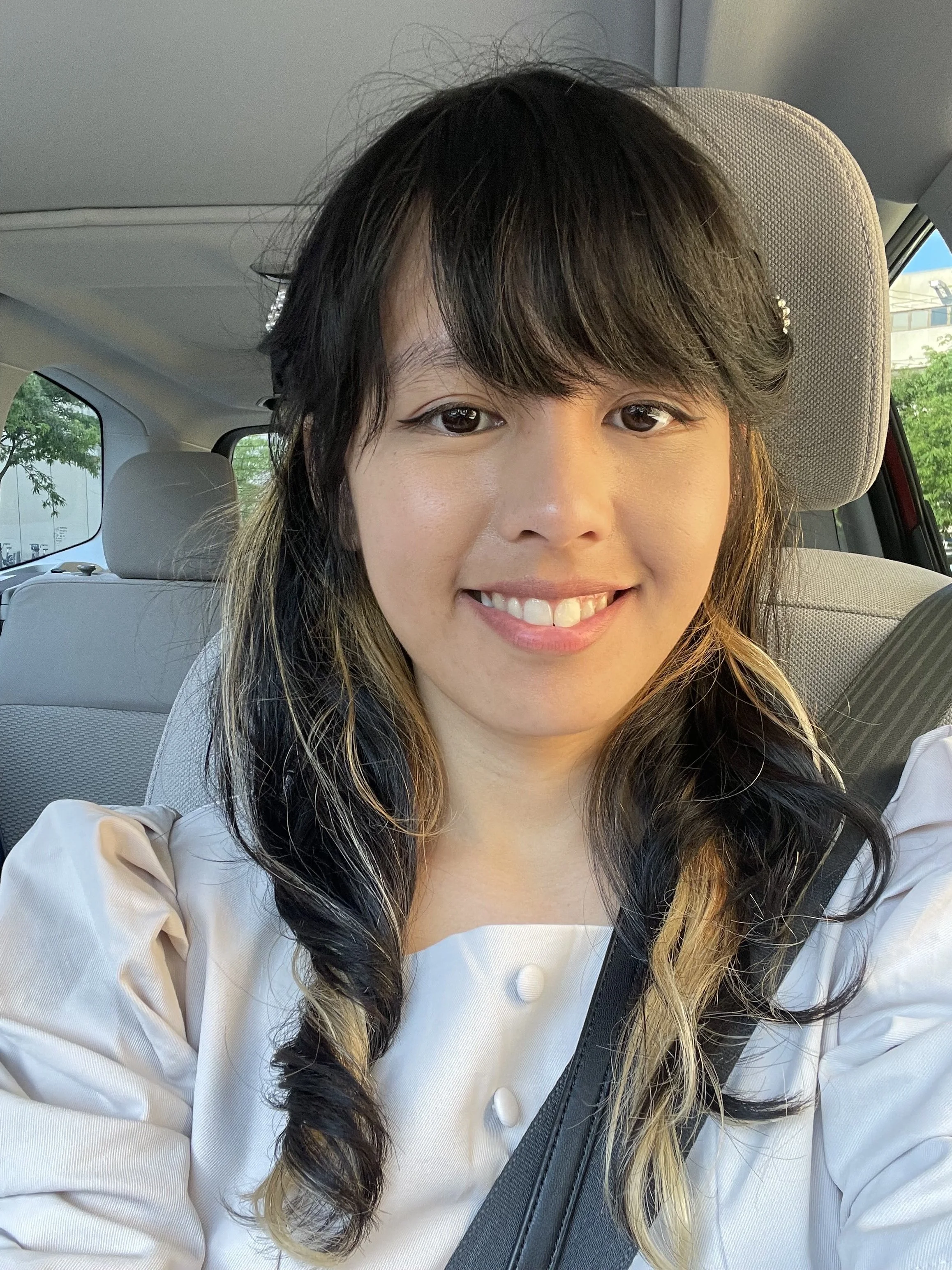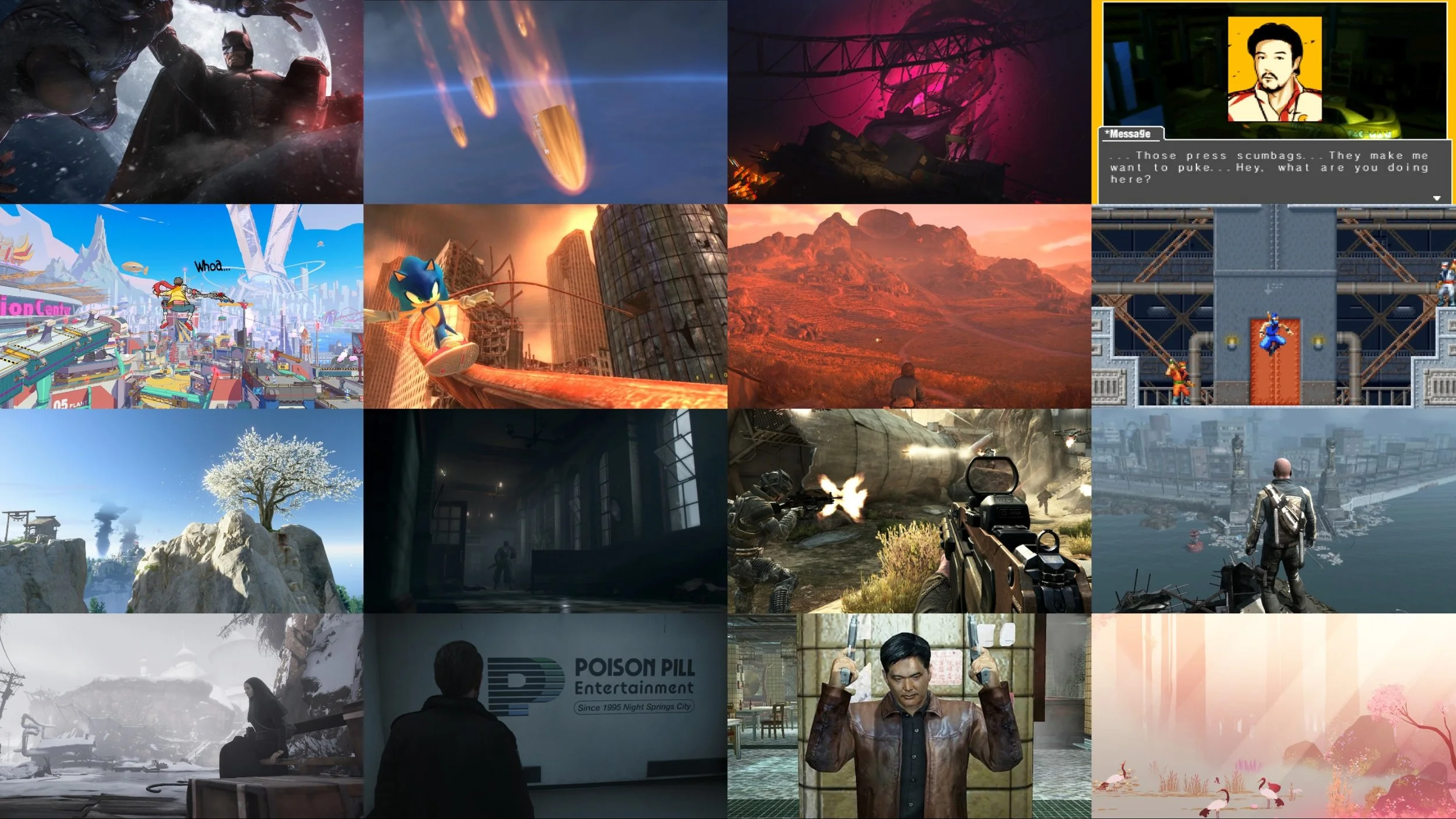Jess Reyes Discovers There’s a Life Outside of the Games Industry | Winter Spectacular 2024
When I was 16, my 11th-grade English teacher asked us to write down where we saw ourselves in 10 years. All I knew was that I wanted to write at a quirky, fun job that I enjoyed.
When I was 26, I celebrated my one-year anniversary as a freelance writer. Two years later, I decided that I wanted more.
My name is Jess Reyes, freelance games journalist and consultant. You might have seen my work in Inverse, Digital Trends, IGN, GameSpot, and PC Gamer among others. I also just finished my first semester of my Master’s degree in Computer Science.
This year, I found a life outside of the games industry. If anything, I hope this story gives you some insight into how you can further your dreams, even if it means making new ones.
—
My career in the games industry started with a spike. I kicked off with steady shift work at Static Media, then started pitching one-off articles and talking with peers on Twitter, and suddenly I was writing for IGN, GameSpot, and Digital Trends before the end of my first year. I was told that was good—that I was special.
Feeling special wasn’t something I wanted to give up. But, even then, I suspected that maybe this wasn’t all it was cracked up to be. I felt pressured to outdo myself.
This guy I considered my senior often told me how lucky I was that editors wanted to commission me. At the time of my one-year freelance anniversary, I told him, “Sometimes I kind of wish I’d just had a normal life. Like, working a full-time job without needing to do my own taxes, chasing payments, worrying about benefits…”
And he said, “You always have a choice. I have real blood on my hands. I did dirty work for survival.”
Yeah, I don’t talk to that guy anymore.
There is such a thing as taking freelancing too seriously. Not just from a workload standpoint, but from an identity standpoint. We are more than just the games we play or bylines we have. However, the occupational hazard of constantly thinking about your job makes it difficult to realise that.
—
When I started school, I introduced myself to the other computer science grad students much like I did at the beginning of this article. Hi, I’m Jess Reyes. I used to be (still am) a games journalist.
For some reason, everyone had to know. I felt like those words encapsulated everything a stranger would need to know about me. Then, I would immediately follow with a spiel about how I’ve already put at least 15 credits into computer science and completed two internships, so they knew I wasn’t totally in over my head.
Society expects us to have a somewhat monogamous relationship with our careers. If you’ve got a side gig, it better be just that—a side gig. If you have a full-time job, it should be your biggest priority. If you’re a full-time grad student, you should act like it.
Now, I don’t have as much time to spend on games. Release dates pass in a vacuum when you’re not trying to track every coverage opportunity for the month or stack reviews and guides to make ends meet.
Nobody cares, it turns out. When you tell normal people that you’re playing a game, they assume that you’re just playing a game. Nobody will ask you what you’re going to write about or who you’re going to write about it for, and they probably don’t care about the niche pitch you’ve been thinking of because they don’t read.
—
I was laid off last year along with thousands of my peers in the games industry. To make up for it, I branched further into commerce, tech, and consulting. Even so, I didn’t make much more than I did the year before. Even after four years of freelancing, my salary wasn’t getting any higher and I wasn’t getting any younger.
People say it isn’t about the money, but it is–at least a little bit. I’m tired of stuffing everything into one backpack to save $100 on a plane ticket. I’m tired of limiting myself to fruit that costs under $4, and only buying from the sales rack.
When I was 29, I found I had other dreams besides writing, like having a stable enough income so that my mom didn’t need to worry about spending her retirement fund on me in case things went to shit.
–
A girl on my floor in my sophomore year of undergrad introduced me to computer science. We talked every now and then, and one day she told me she finally decided on her major: Computer Science. I asked her why.
“It’s like the least STEM, STEM major,“ she said.
I was sold. Even though I was a writer at heart, I was hunting for useful minors (because I thought that meant something at the time). So I took an intro class in Java.
It was hard. My classmates complained that their honor student older brother and senior management father working in the industry had no idea what was going on with our assignments.
I thought, I need to get it done anyway, even if it’s hard. (That same mindset would help me survive freelancing three years later.)
Fifteen credits and two internships into my fling with programming, I started to feel that same spark I found with writing. Compiling bug-free code felt like when a draft full of word-vomit finally started to sing, and the praise I received from my computer science classmates about my problem-solving skills felt similar to what I heard from writing ones about their interest in my words.
But I couldn’t give up the dream of writing. I still applied for writing internships in between STEM classes.
During one of those internships, I interviewed a freelance fashion designer who used to teach English in France. He told me he couldn’t stop thinking about designing while he was there. Everything he did was just a means to keep designing, enough that he ended up thinking, “If this is what’s most important to me, then what am I doing here?”
What am I doing here?
Soon after, I moved home to apply for tons of entry-level writing jobs that didn’t want me. Of course, I eventually made it, but that’s a story for another time.
—
If I never started freelancing, I would’ve always wondered what it felt like to write for a living. It was everything I dreamed of and more, from the behind-the-scenes conversations with creators to the parasocial weirdness of social media. Connecting with peers across the globe was just a bonus. After completing my one dream, I decided I might as well start another.
I agonised about not trying hard enough to make it work, but reasoned that I could fund my creative endeavours with my new profession. I crammed for exams right before and immediately after The Game Awards, when big names I knew were still losing or leaving their jobs during what seemed like every other week.
My new life also had some perks I’d forgotten in the freelance grind. Before grad school, I was obsessing over covering Metaphor: ReFantazio. When I was actually in grad school, I didn’t have the time to play it at launch. Picked it up a whole month later and the world didn’t end. In fact, I might be playing it “just for fun” because I’ve missed the boat on reviews and guides.
The day after my last final, I woke up and played Honkai: Star Rail all day. It would be a day or two until my next assignments, and I had no desire to scramble for pitches. It felt like, for the first time in years, I could actually do anything. My identity didn’t need to be tied to my professional life or persona.








![[PATREON UNLOCK] Update Patch - December 2024](https://images.squarespace-cdn.com/content/v1/5caf2dea93a63238c9069ba4/1735860333763-SR0QWT19G28KQGVN8YCK/Update+Patch+0.jpg)



